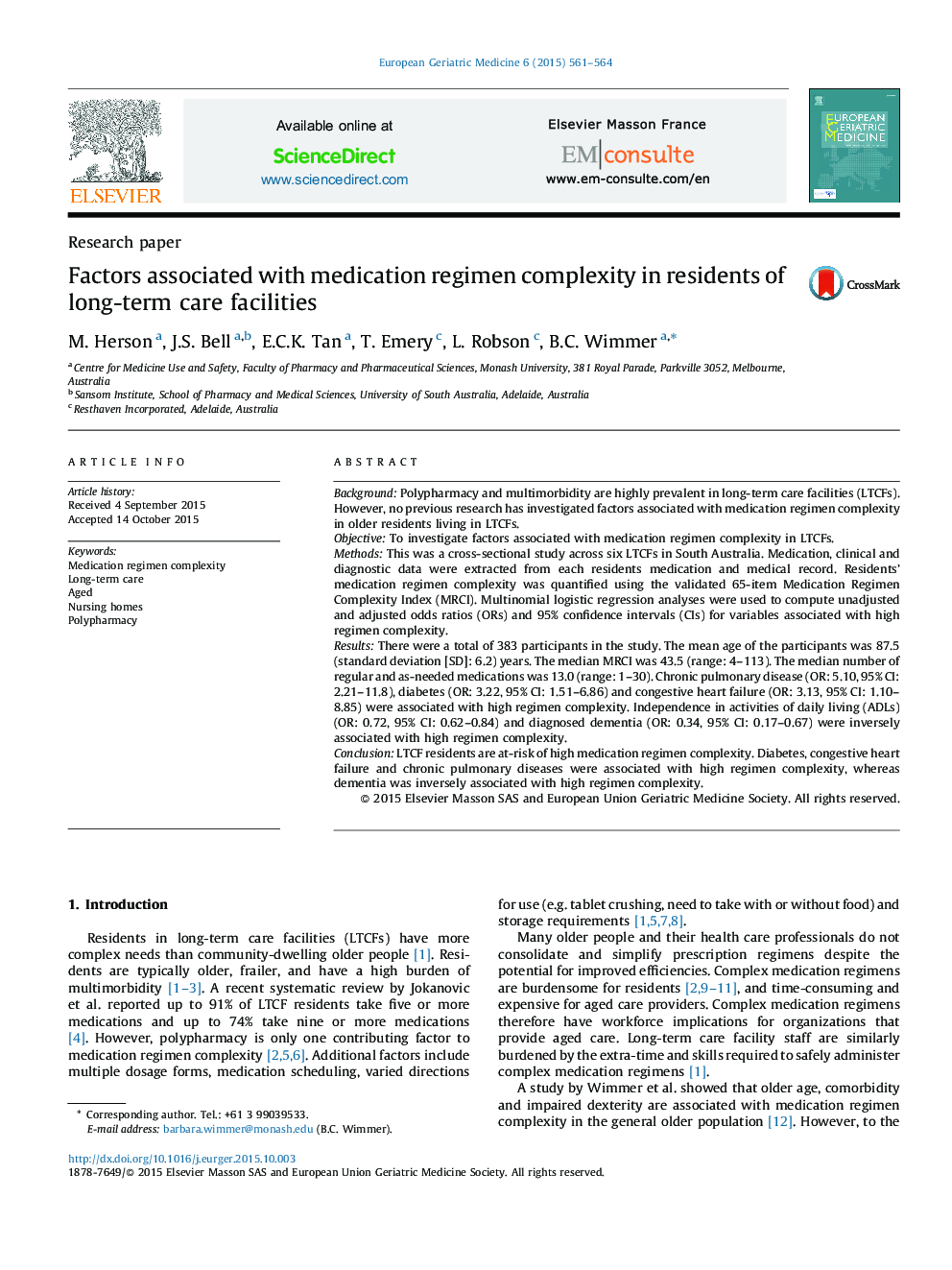| Article ID | Journal | Published Year | Pages | File Type |
|---|---|---|---|---|
| 3323910 | European Geriatric Medicine | 2015 | 4 Pages |
BackgroundPolypharmacy and multimorbidity are highly prevalent in long-term care facilities (LTCFs). However, no previous research has investigated factors associated with medication regimen complexity in older residents living in LTCFs.ObjectiveTo investigate factors associated with medication regimen complexity in LTCFs.MethodsThis was a cross-sectional study across six LTCFs in South Australia. Medication, clinical and diagnostic data were extracted from each residents medication and medical record. Residents’ medication regimen complexity was quantified using the validated 65-item Medication Regimen Complexity Index (MRCI). Multinomial logistic regression analyses were used to compute unadjusted and adjusted odds ratios (ORs) and 95% confidence intervals (CIs) for variables associated with high regimen complexity.ResultsThere were a total of 383 participants in the study. The mean age of the participants was 87.5 (standard deviation [SD]: 6.2) years. The median MRCI was 43.5 (range: 4–113). The median number of regular and as-needed medications was 13.0 (range: 1–30). Chronic pulmonary disease (OR: 5.10, 95% CI: 2.21–11.8), diabetes (OR: 3.22, 95% CI: 1.51–6.86) and congestive heart failure (OR: 3.13, 95% CI: 1.10–8.85) were associated with high regimen complexity. Independence in activities of daily living (ADLs) (OR: 0.72, 95% CI: 0.62–0.84) and diagnosed dementia (OR: 0.34, 95% CI: 0.17–0.67) were inversely associated with high regimen complexity.ConclusionLTCF residents are at-risk of high medication regimen complexity. Diabetes, congestive heart failure and chronic pulmonary diseases were associated with high regimen complexity, whereas dementia was inversely associated with high regimen complexity.
